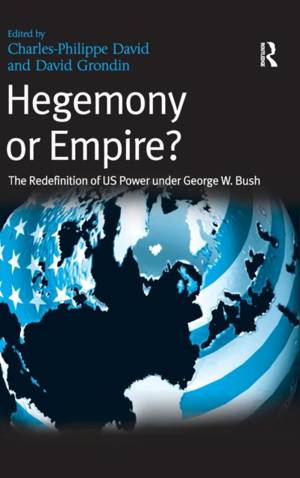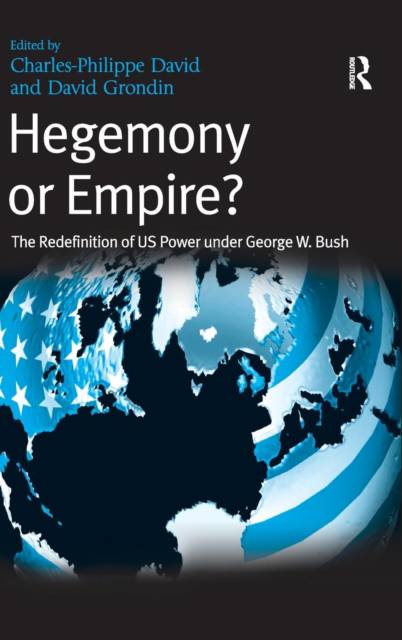
- Afhalen na 1 uur in een winkel met voorraad
- Gratis thuislevering in België vanaf € 30
- Ruim aanbod met 7 miljoen producten
- Afhalen na 1 uur in een winkel met voorraad
- Gratis thuislevering in België vanaf € 30
- Ruim aanbod met 7 miljoen producten
Zoeken
Hegemony or Empire?
The Redefinition of US Power under George W. Bush
David Grondin
Hardcover | Engels
€ 274,95
+ 549 punten
Omschrijving
American power has been subjected to extensive analysis since September 11, 2001. While there is no consensus on the state of US hegemony or even on the precise meaning of the term, it is clear that under George W. Bush the US has not only remained the 'lone superpower' but has increased its global military supremacy. At the same time, the US has become more dependent on its economic, financial and geopolitical relationships with the rest of the world than at any other time in its history, markedly since the events of 9/11. The distinguished scholars in this volume critically interpret US hegemony from a range of theoretical and topical perspectives. They discuss the idea of empire in the age of globalization, critique the Bush doctrine, analyze the ideologies underpinning a new American imperialism and examine the influence of neo-conservatism on US foreign and domestic policy.
Specificaties
Betrokkenen
- Auteur(s):
- Uitgeverij:
Inhoud
- Aantal bladzijden:
- 256
- Taal:
- Engels
Eigenschappen
- Productcode (EAN):
- 9780754647744
- Verschijningsdatum:
- 16/10/2006
- Uitvoering:
- Hardcover
- Formaat:
- Genaaid
- Afmetingen:
- 156 mm x 234 mm
- Gewicht:
- 535 g

Alleen bij Standaard Boekhandel
+ 549 punten op je klantenkaart van Standaard Boekhandel
Beoordelingen
We publiceren alleen reviews die voldoen aan de voorwaarden voor reviews. Bekijk onze voorwaarden voor reviews.











